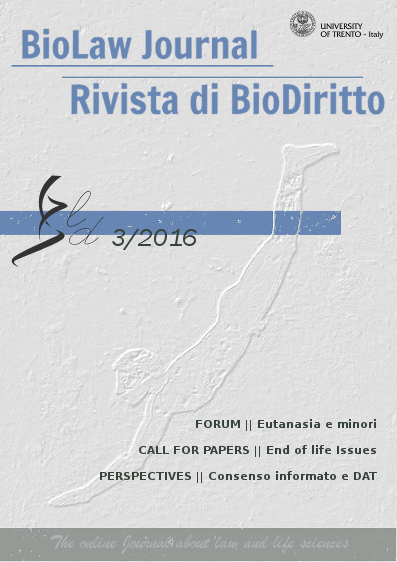Disegno di Legge Cirinnà e contratti internazionali di maternità surrogata: l’ammissione della step child adoption avrebbe rischiato di generalizzare una pratica vietata in Italia?
DOI:
https://doi.org/10.15168/2284-4503-194Parole chiave:
Step child adoption, surrogacy, fundamental rights, regulation, recognitionAbstract
The Italian debate around the extension of the “step child adoption” provision for same-sex couples has been settled by the Senate, which approved a reduced version of the Cirinnà bill that has been confirmed by the Chamber of Deputies. The “step child adoption” provision was among the most disputed aspects of the bill, and has not been kept in the final version approved by the Senate. One of the arguments raised against this provision established a link between the possibility for a man to adopt his partner’s child and a hypothetical encouragement of international surrogacy. According to this view, a surrogate established in a country where the practice is admitted would carry the natural child of one of the men, and would abandon the newborn in order for this latter to be adopted by the other partner. The purpose of this short paper is to inquire, departing from the legal framework for surrogacy in Italy and abroad, whether the admission of the “step child adoption” provision within the Cirinnà bill would actually have an impact on the practice of international surrogacy. The perspective has been a qualitative one: the effects of the provision have been contemplated from the point of view of the surrogate and the child, main parties concerned by the practice, and those who shall be specifically contemplated by any effort of regulation in this matter.





